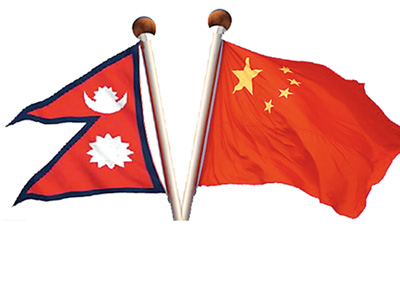Oct 25, 2015- In a desperate bid to ease the ongoing fuel crisis in the country, the government has formally started the process to import petroleum products from China. The unprecedented move may end the four-decade long monopoly of the Indian Oil Corporation (IOC) as the fuel supplier to Nepal.
Newly-appointed Commerce and Supplies Minister Ganesh Man Pun on Saturday said the government was set to import fuel from the China National Petroleum Corporation as the country is reeling under an acute shortage of fuel products.
As the fuel demand normally doubles during winter due to prolonged power outage, the government fears that the crisis could deepen. “Preparations for a commercial deal with China to import fuel have reached the final stage. We will be dispatching a government-led team soon to China for the purpose,” he said. However, the date of signing the deal has not been set. “The move is aimed at ensuring alternative arrangements to import fuel,” said Minister Pun. He, however, added that diplomatic efforts were under way to remove the unofficial trade blockade imposed by India on the southern border. According to Pun, the agreement will pave the way for the state-owned Nepal Oil Corporation as well as private companies to import fuel from China.
A team comprising officials from the Foreign and Commerce ministries and the NOC will leave for Beijing on Sunday or Monday to seal the deal. Before signing the agreement, the northern neighbour has pledged 1,000 tonnes of petroleum products as subsidy to Nepal. The government plans to import 10,000 tonnes of fuel after the deal as a temporary measure to make the supply situation normal. A government team that left for China three days ago to hold talks with the Chinese authority was forced to return due to a road blockage near the Kerung border caused by landslides. Since the IOC has been providing only 10 percent of the country’s fossil fuel requirement for a month, there are no signs of the crisis ending soon.
On a normal day, the NOC imported petrol, diesel, kerosene and air turbine fuel on 350 tankers from the IOC. However, after the blockade the IOC has been sending only 30-35 tankers on a daily average. Under the bilateral petroleum supply agreement signed with the IOC, Nepal has an exclusive right of importing fuel from third countries. Even the IOC is authorised to deal with other suppliers in Nepal. On April 27, 2012, the NOC and the IOC signed a new petroleum supply pact for effect until March 31, 2017. An NOC official said it is technically feasible to import fuel from China but the cost would be higher than bringing it in from India.
“The only concern for importing fuel from north is that the highway cannot sustain the stress of heavy trucks,” the official said. Talks are for importing fuel via the Rasuwagadhi-Kerung point. The other passage closest to Kathmandu, Tatopani-Khasa, has been shut since the April earthquake. In its bid to seek a way out of the border obstruction, the NOC had a few weeks ago called for expressions of interest from suppliers. On a four-day notice, 22 companies applied to supply fuel to the NOC. Lilendra Prasad Pradhan, president of Nepal Petroleum Dealers’ Association, said the government should sign a bilateral trade treaty with the Chinese government to import fuel as a long-term measure.
DPM Thapa urges New Delhi to keep its word
The government has said India has failed to comply with its assurance of easing the petroleum supply it has been “obstructing” for the last one month.
Addressing the parliamentary session on Saturday, Deputy Prime Minister and Foreign Minister Kamal Thapa claimed India’s Minister for Foreign Affairs Sushma Swaraj had agreed to take a concrete step in increasing fuel supply to Nepal during their meeting in New Delhi last week. Besides Swaraj, Thapa had also met with Indian PM Narendra Modi and Home Minister Raj Nath Singh. “The Indian side had assured us that they would ease supplies. It’s been a week since my visit, but there has not been much progress. We hope the Indian side will make good on its promise,” he said.
Thapa claimed that unobstructed transit is the right of the landlocked country and international laws have guaranteed such rights.
Briefing Parliament on government’s efforts at easing the fuel crisis, DPM Thapa said it had already started the process to import fuel from another country. The government is also preparing to involve the private sector in fuel import, he added.
Thapa said the obstruction in transit has caused more damage to the country than the April 25 earthquake. “The government is sincerely working to ease fuel supply without compromising on the country’s dignity,” said Thapa, who also leads the government dialogue panel.
Published on: The Kathmandu Post (October 25, 2015)












